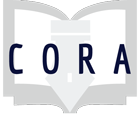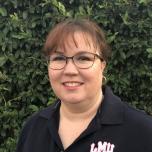This 30-minute activity was a quick introduction to algorithmic bias and the importance of critically evaluating search engine results. Algorithms increasingly shape modern life and can perpetuate bias and discrimination. In pairs, students analyzed the results from Google Image searches and Google Autocomplete suggestions. This activity was based on “Algorithms of Oppression: How Search Engines Reinforce Racism,” by Safiya Umoja Noble. This lesson plan was Part 1 of an hour-long workshop that also included a 30 minute Google Scholar activity.
Elisa
Primary tabs
Assignments Contributed
Environmental science students critically analyzed the Environmental Protection Agency’s (EPA) website and its treatment of climate change during the Trump, Obama, and Bush presidencies. This library “warm-up” activity was designed to raise awareness of data fragility and the long-term accessibility of government websites. As future science professionals, it’s important to think about how this impacts scientists and their work. Students were introduced to several tools including: The Internet Archive’s Wayback Machine, End of Term Archive, and Data Refuge.
This activity was created to introduce first-year students to library resources they can use for their annotated bibliography assignment. In pairs, students are assigned a task card that requires them to find an information source. After finding a source meeting the criteria of their task card, the student teams input their answers into a Google Form. Formative assessment takes place during class, allowing the librarian to modify instruction on-the-spot based on the responses from the form.
Students in an introductory Women's and Gender Studies course are required to critically analyze and edit an article in Wikipedia. Through class discussion and an active learning exercise, students begin to understand how and why women and many racial groups and individuals are underrepresented or systematically marginalized in Wikipedia. Students learn how to use the "Talk" tab to evaluate Wikipedia articles and learn about authority and power structures within that community.
In an effort to provide students with an open space to learn about and discuss recent national concerns over “fake news,” the library offered four sessions of the workshop “Keepin’ It Real: Tips & Strategies for Evaluating Fake News” during a campus-wide Inauguration Teach-In on Friday, January 20, 2017. During this session, students had the opportunity to talk about how misleading news sources (encompassing misinformation, disinformation, click-bait, propaganda, etc.) have affected their views on civil discourse, specifically relating to the recent U.S. presidential election.
Students interview their professor(s) and ask them to describe how they do research, how research gets disseminated in their discipline, etc. Each student can ask one question below. This assignment can be useful as a “first day of class” activity for a First Year Seminar. Novice researchers are introduced to scholarly discourse and discipline-specific approaches to producing knowledge by experts.
Assignments Collaborated
Algorithms are not neutral but this does not mean they are not useful tools for research. In this workshop on algorithmic bias, student learn how algorithms can perpetuate bias and discrimination and how to critically evaluate their search results.
Using three example excerpts on citation practice and the experiences of specific scholars, attendees will interrogate and discuss how whiteness and other oppressions impact citation practice using a series of questions.
This 30-minute activity demonstrates how to search in Google Scholar and explains how results are ranked. It requires students to explore Google Scholar and encourages students to reflect on potential biases this tool might have in regards to research. This lesson plan was Part 2 of an hour-long workshop that also included a 30 minute search engine algorithmic bias lesson.
The “Open Access: Strategies and Tools for Life after College” workshop was developed to give students the tools to continue academic research after graduation. Students may not recognize that the library provides many electronic resources for their research that is automatically given to them during their enrollment; by acknowledging their privileged access to information, they are prepared to be responsible researchers beyond campus. The workshop was requested by international students who were concerned about losing access to LMU resources when they returned home.
This assignment is designed to help students develop a thoughtful research topic. Students go through a series of steps, questions, and background reading to help them better understand and refine a research topic.
Assignments Adapted
I adapted your worksheet questions (based on Dr. Safiya Noble's work: Algorithms of Oppression):
1. What do you see?
2. Who do you see?
3. Who do you expect to see? / Who is missing?
4. How does the information provided by these images influence you?
5. Does this tell us anything about how this population is represented or misrepresented?
I was also influenced by your lesson plan.
Thank you Margaret & Gina!
Great lesson plan! I adopted your “optional worksheet” for a Rhetorical Arts class and a Computer Science class. The worksheet is a nice scaffolding activity for the annotated bibliography and final paper. https://lmu.box.com/worksheets
Contributor Stats
| Total views | Adapters Count | Comment count | Document Downloads |
|---|---|---|---|
| 2,339 | 1 | 0 |
|
| Total views | Adapters Count | Comment count | Document Downloads |
|---|---|---|---|
| 486 | 1 |
|
| Total views | Adapters Count | Comment count | Document Downloads |
|---|---|---|---|
| 554 | 0 |
| Total views | Adapters Count | Comment count | Document Downloads |
|---|---|---|---|
| 456 | 2 | 0 |
|
| Total views | Adapters Count | Comment count | Document Downloads |
|---|---|---|---|
| 4,979 | 0 |
|
| Total views | Adapters Count | Comment count | Document Downloads |
|---|---|---|---|
| 948 | 1 |
|

